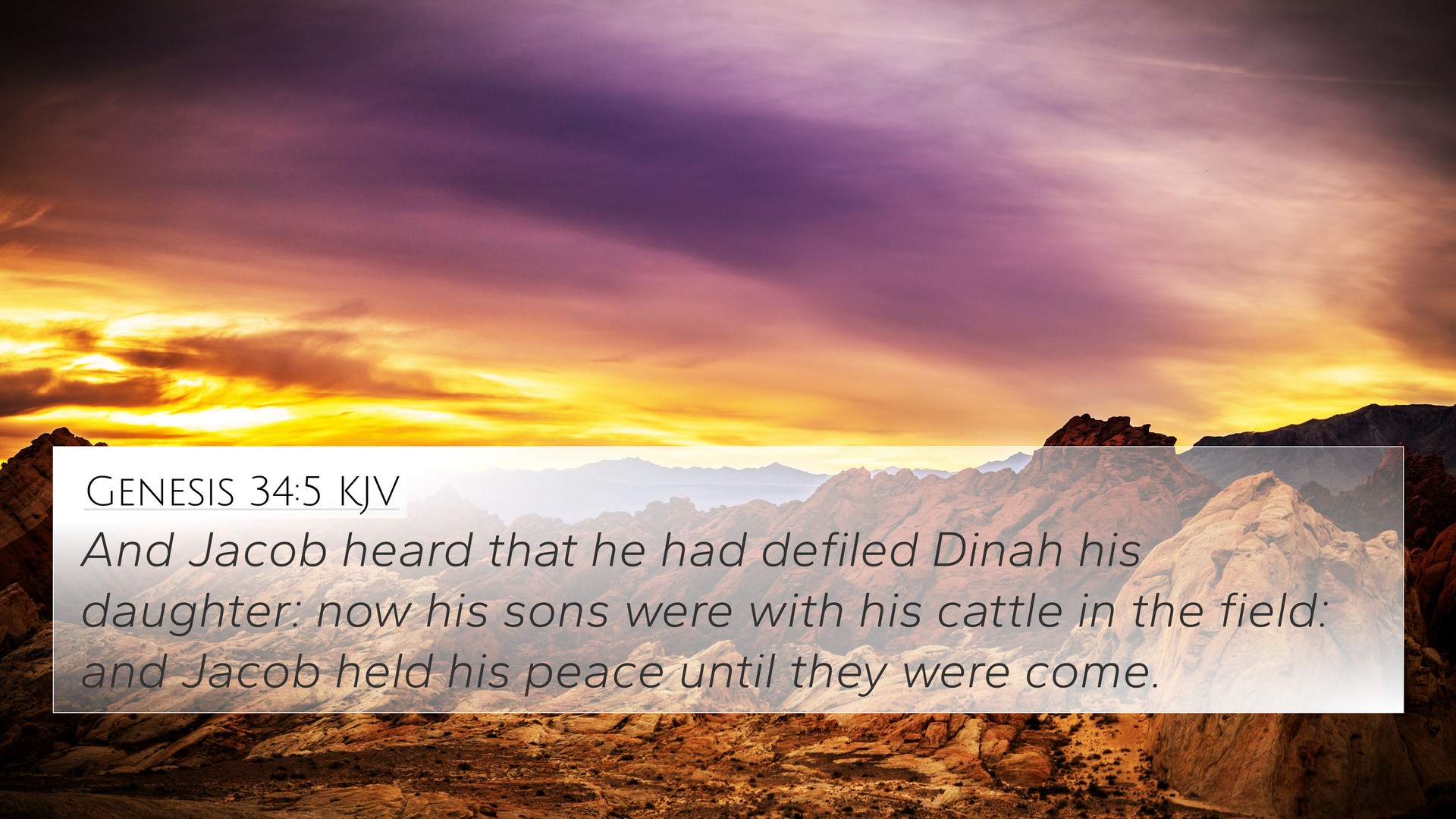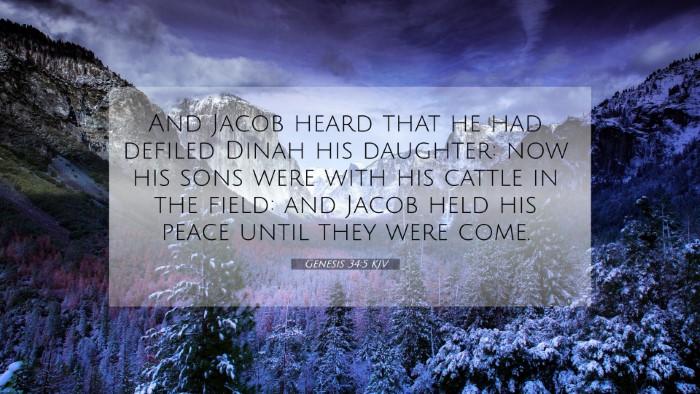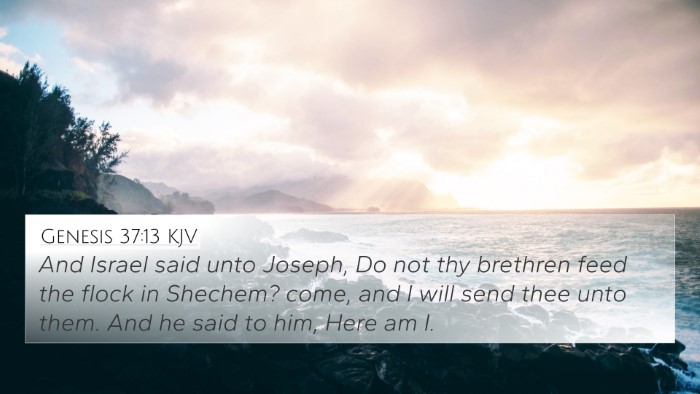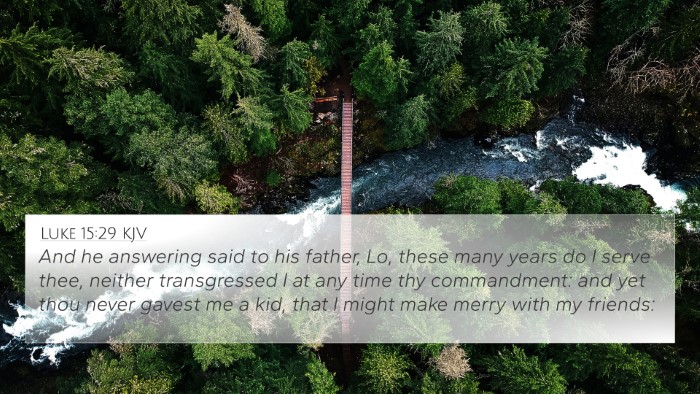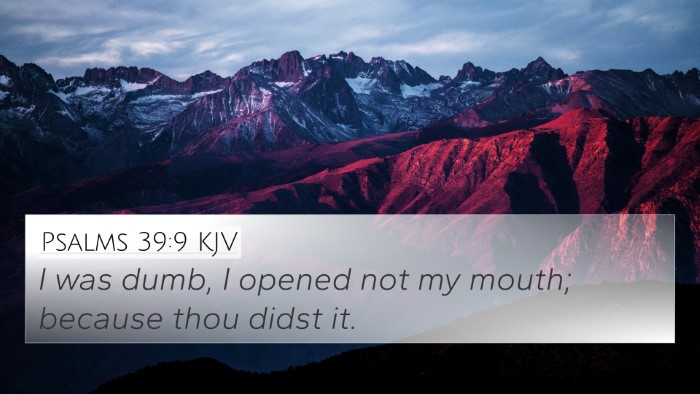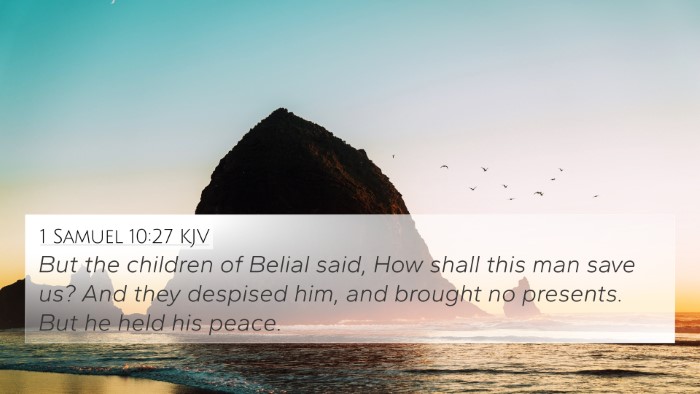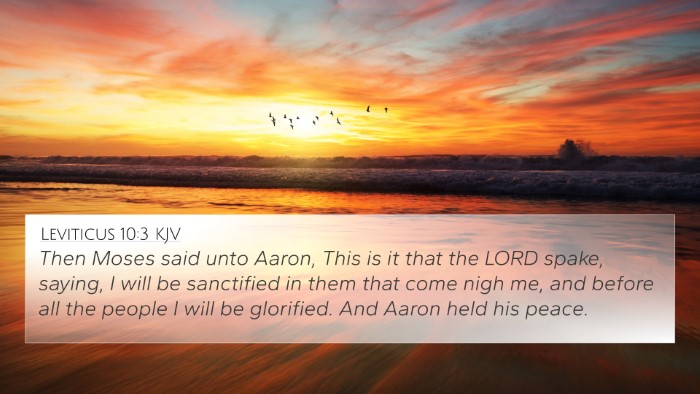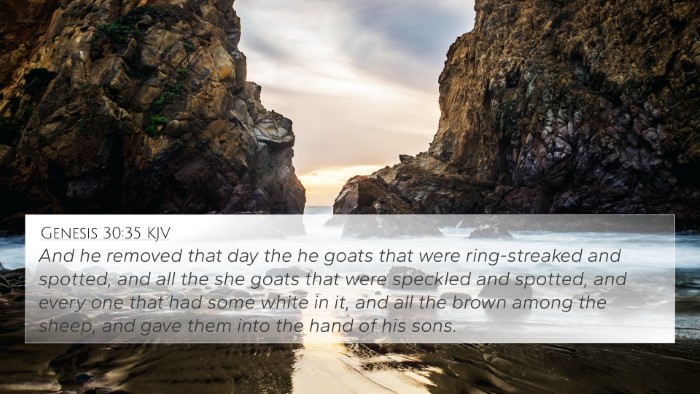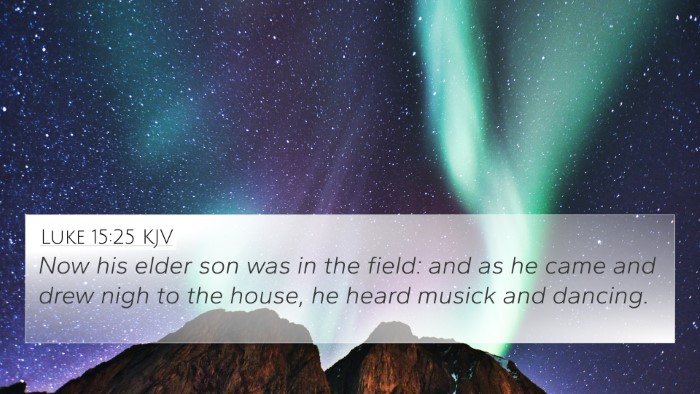Understanding Genesis 34:5
Genesis 34:5 narrates a pivotal moment in the life of Jacob following the distress caused by the actions of his daughter Dinah and the Shechemites. This verse introduces emotional and moral themes that resonate throughout the Scripture.
Verse Overview
The context of this verse involves Dinah's encounter with Shechem, the son of Hamor, which results in significant implications for Jacob's family. As Jacob learns of the happenings, various interpretations arise regarding his reaction and the unfolding events.
Commentary Insights
-
Matthew Henry:
Henry emphasizes Jacob's mourning for Dinah's dishonor, noting that his reaction reflects a father's grief and protective instincts. He highlights that Jacob remains passive amongst turbulent family dynamics, hinting at a lack of decisive action.
-
Albert Barnes:
Barnes points out that Jacob’s delay in action portrays both his character and the cultural issues at hand. The surrounding events reveal tensions between Israelite values and those of the Canaanites, setting the stage for future conflicts.
-
Adam Clarke:
Clarke brings forth the theme of honor and shame in ancient cultures, illustrating the gravity of Dinah's situation, which compels the family to navigate the complex dynamics that emerge from these cultural clashes.
-
Historical Context:
Understanding the historical context of Genesis 34:5 aids in appreciating the broader narrative of Israel’s formation. This episode acts as a precursor to many issues faced by Israel concerning intermarriage and cultural assimilation.
-
Moral Lessons:
This narrative serves as a cautionary tale underscoring the dangers of mingling with surrounding nations, which echoes through later legislation in the Mosaic Law.
Bible Verse Cross-References
Understanding Genesis 34:5 can be enhanced by considering the following cross-referenced verses:
- Exodus 34:15-16: Addresses the dangers of intermarriage with surrounding nations.
- Deuteronomy 7:3-4: Warns against marrying foreigners to avoid leading one’s heart away from God.
- Genesis 49:5-7: Jacob’s blessings to his sons include commentary on the violent nature of Simeon and Levi.
- Luke 11:34-36: Explores the concept of inner integrity versus outer appearances, relatable to the moral struggles here.
- Proverbs 1:10-15: Highlights the allure of temptation and the commitment to resist peers influencing one’s moral compass.
- Romans 12:1-2: Calls Christians to resist conformity to the surrounding culture, parallel to Jacob's concerns.
- 1 Corinthians 15:33: Emphasizes that bad company corrupts good morals, a theme evident in the ramifications of Dinah's situation.
- Genesis 34:26: Shows how the family reacts violently, illustrating the far-reaching consequences of Dinah's dishonor.
- Ephesians 5:11: Encourages believers not to engage in the immoral actions of the world, reflecting the ancient Israelite context.
- Colossians 2:8: Warns against being led astray by empty traditions which can be mirrored in the events of Genesis 34.
Thematic Connections
Genesis 34:5 highlights key themes such as:
- Honor and Shame: The family unit's reputation is at stake, echoing through various biblical narratives.
- Family Dynamics: Relationships within Jacob's family illustrate the complexity of spiritual and moral decisions.
- Cultural Identity: This verse emphasizes the necessity for Israel to maintain cultural integrity amidst outside pressures.
- Divine Justice: The aftermath of these actions raises questions about divine intervention and justice, which are explored throughout Scripture.
Conclusion
In summary, Genesis 34:5 presents an intricate interplay of themes regarding familial honor, cultural identity, and moral choices. Using cross-referencing tools, readers can deepen their understanding of how this verse links to the broader narrative of the Bible and addresses key moral and cultural lessons relevant to every generation.
